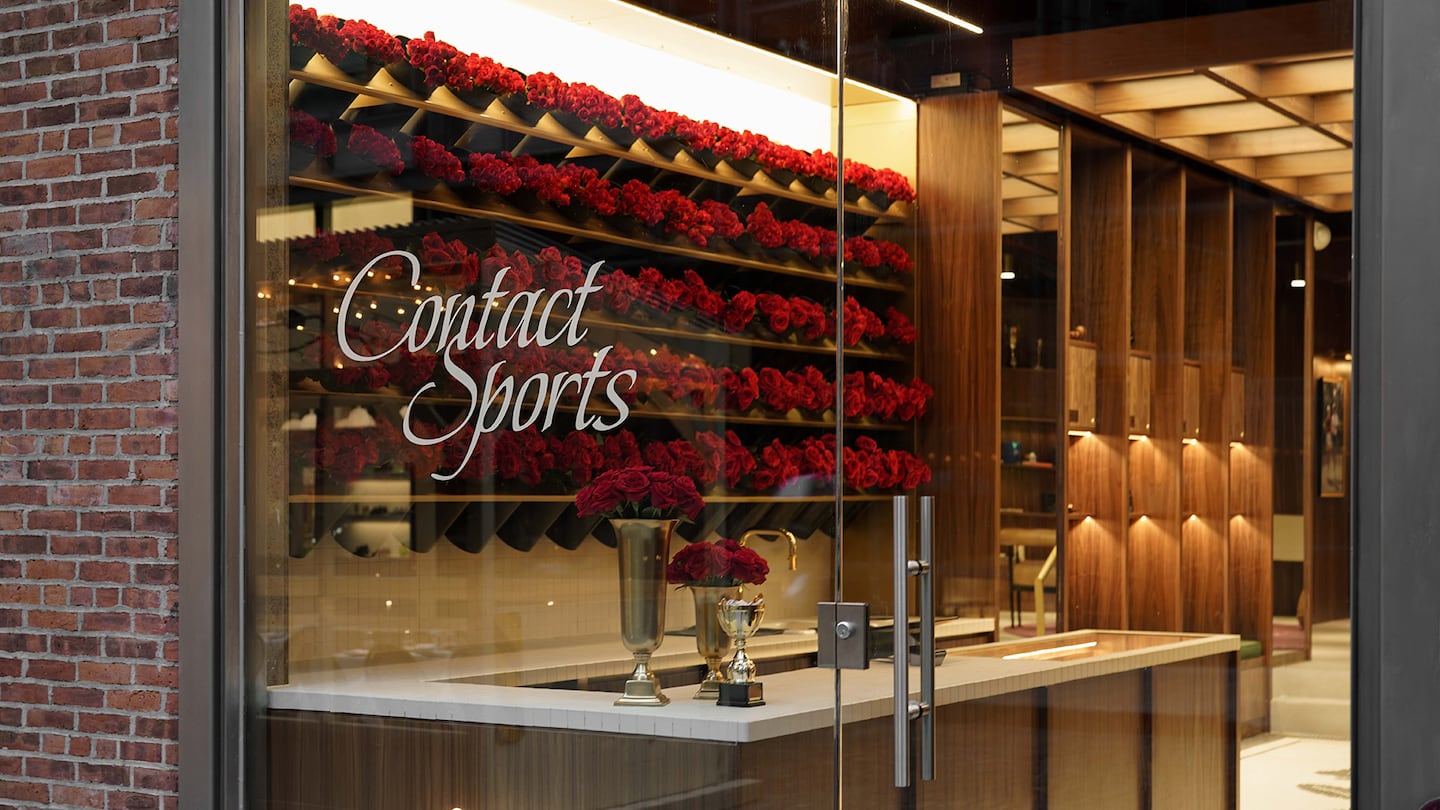
Agenda-setting intelligence, analysis and advice for the global fashion community.

Agenda-setting intelligence, analysis and advice for the global fashion community.

When Contact Sports opened in New York’s SoHo neighbourhood in March 2023, it had some bold ideas about the future of retail.
The store resembled a 1970s sports locker room complete with wood-panelled cubbies, a leather lounge chair shaped like a baseball glove and vintage Playboy magazines. The goal was to elevate shopping for sexual devices, lubricants and condoms, which had historically been relegated to specialty sex shops.
The storefront is now boarded up. A wall of red roses that once greeted shoppers was replaced by an announcement: “The Locker Room will be closing for now. Let’s just say we pulled something and need some time to recover.”
Founders Justin Kerzner and Chelsea Kerzner told The Business of Beauty that they have decided to focus attention and resources on their other businesses, including Magic Molecule, a skincare label that launched a month prior to Contact Sports, and is “growing more significantly.”
ADVERTISEMENT
Still, Justin Kerzner said he considers Contact Sports a success. Through the store’s branding and design as well as the community events they hosted, Contact Sports was able to make sexual wellness “less seedy.”
“People understood it almost immediately, which is the hardest part about building a brand” he said. “It resonated across genders and ages.”
Contact Sports had ambitions to become a top specialty retailer for the sexual wellness segment, launching with 70 brands, and prices ranging from $100 to $1000.
Thanks to direct-to-consumer players with luxe packaging, clever marketing and sometimes, a celebrity endorsement, the sexual wellness category has rapidly garnered more mainstream acceptance. Sexual wellness brands Playground and Dame have launched in Target, and Maude inked a deal with LVMH-owned Sephora in 2023. Retailers expanding their assortment of sexual wellness brands were convinced that customers were eager to shop for vibrators and massage oils during their grocery run. The sexual wellness device category is expected to grow by 7 percent annually to 2026, according to analysis by PwC.
In less than a year, the retailer pulled in sales of “just over $500,000,” with a slight majority of the purchases being in the store’s apparel segment which encompassed hoodies, socks and sweatshirts with rose insignia. The business was not profitable, according to Kerzner.
The store’s closure was swift: the store’s three retail associates were laid off, with two former employees joining Magic Molecule’s staff. The company did not discount their merchandise before shuttering, leaving Kerzner to manage the inventory. A month before closure, the retailer launched a collaboration with The Standard Hotel on a collection of robes, and was in talks with fragrance brand Snif to create a signature Contact Sports scent that had notes of sweat to be sold in store.
Kerzner says despite the closure, the store concept “worked well,” and the sexual wellness category has a future in physical retail.
“The products are in tremendous demand but the customer experience is lacking in a big way because the storytelling behind how products work and what you need it for [is missing],” said Kerzner. “That education is really, really difficult to tell from an e-commerce perspective.”
The Soho boutique is probably the first sex toy shop with a shrine to Wayne Gretzky, but it’s not alone in its pursuit of using vibrators and lube to lure shoppers into stores.
While legacy players such as Trojan and Durex have dominated the male sexual wellness category for decades, new age brands are banking on expanding notions of masculinity, product innovation and approachable storytelling to capture the male-identifying consumer.
The State of Fashion: Beauty finds that brands have a growing opportunity to tap into emerging wellness subcategories — from sleep to sexual intimacy to ingestible beauty — by upgrading existing products or expanding portfolios, provided they do so with credibility and authenticity.

Yola Mzizi is the Editorial Associate at The Business of Fashion (BoF). She is based in New York and provides operational support to the New York team and writes features for BoF and The Business of Beauty.
Can sketch comedy sell makeup? Maybelline and E.l.f. Cosmetics are finding out.
L’Oréal’s dermatological beauty division is usually a blockbuster, but the impact of increased competition and the decline of drugstore distributors on its recent earnings show the company can’t rest on its laurels.
Since 2016, Kristin Noel Crawley has grown KNC Beauty slowly and steadily. Now, she’s ready for its big break.
The influencer-favourite brand seemed on rocket-like trajectory in the 2010s, culminating in a reported $3 billion valuation in 2018. But since then, trends have shifted, sales have slid, debt has mounted and its main investor, the private equity firm TPG Capital, is ready to move on.